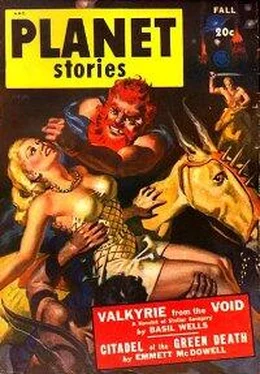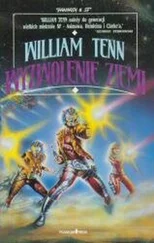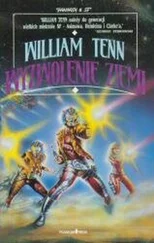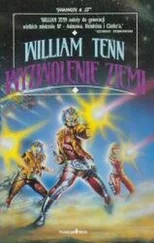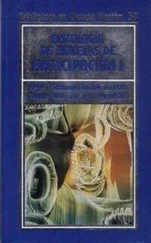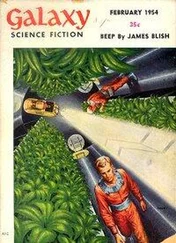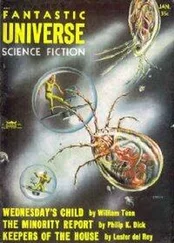William Tenn - Brooklyn Project
Здесь есть возможность читать онлайн «William Tenn - Brooklyn Project» весь текст электронной книги совершенно бесплатно (целиком полную версию без сокращений). В некоторых случаях можно слушать аудио, скачать через торрент в формате fb2 и присутствует краткое содержание. Город: New York, Год выпуска: 1948, Издательство: Love Romances Publishing Co., Inc., Жанр: Юмористическая фантастика, на английском языке. Описание произведения, (предисловие) а так же отзывы посетителей доступны на портале библиотеки ЛибКат.
- Название:Brooklyn Project
- Автор:
- Издательство:Love Romances Publishing Co., Inc.
- Жанр:
- Год:1948
- Город:New York
- ISBN:нет данных
- Рейтинг книги:3 / 5. Голосов: 1
-
Избранное:Добавить в избранное
- Отзывы:
-
Ваша оценка:
- 60
- 1
- 2
- 3
- 4
- 5
Brooklyn Project: краткое содержание, описание и аннотация
Предлагаем к чтению аннотацию, описание, краткое содержание или предисловие (зависит от того, что написал сам автор книги «Brooklyn Project»). Если вы не нашли необходимую информацию о книге — напишите в комментариях, мы постараемся отыскать её.
Brooklyn Project — читать онлайн бесплатно полную книгу (весь текст) целиком
Ниже представлен текст книги, разбитый по страницам. Система сохранения места последней прочитанной страницы, позволяет с удобством читать онлайн бесплатно книгу «Brooklyn Project», без необходимости каждый раз заново искать на чём Вы остановились. Поставьте закладку, и сможете в любой момент перейти на страницу, на которой закончили чтение.
Интервал:
Закладка:
William Tenn
Brooklyn Project
The gleaming bowls of light set in the creamy ceiling dulled when the huge, circular door at the back of the booth opened. They returned to white brilliance as the chubby man in the severe black jumper swung the door shut behind him and dogged it down again.
Twelve reporters of both sexes exhaled very loudly as he sauntered to the front of the booth and turned his back to the semi-opaque screen stretching across it. Then they all rose in deference to the cheerful custom of standing whenever a security official of the government was in the room.
He smiled pleasantly, waved at them and scratched his nose with a wad of mimeographed papers. His nose was large and it seemed to give added presence to his person. “Sit down, ladies and gentlemen, do sit down. We have no official fol-de-rol in the Brooklyn Project. I am your guide, as you might say, for the duration of this experiment—the acting secretary to the executive assistant on press relations. My name is not important. Please pass these among you.”
They each took one of the mimeographed sheets and passed the rest on. Leaning back in the metal bucket seats, they tried to make themselves comfortable. Their host squinted through the heavy screen and up at the wall clock, which had one slowly revolving hand. He patted his black garment jovially where it was tight around the middle.
“To business. In a few moments, man’s first large-scale excursion into time will begin. Not by humans, but with the aid of a photographic and recording device which will bring us incalculably rich data on the past. With this experiment, the Brooklyn Project justifies ten billion dollars and over eight years of scientific development; it shows the validity not merely of a new method of investigation, but of a weapon which will make our glorious country even more secure, a weapon which our enemies may justifiably dread.
“Let me caution you, first, not to attempt the taking of notes even if you have been able to smuggle pens and pencils through Security. Your stories will be written entirely from memory. You all have a copy of the Security Code with the latest additions as well as a pamphlet referring specifically to Brooklyn Project regulations. The sheets you have just received provide you with the required lead for your story; they also contain suggestions as to treatment and coloring. Beyond that—so long as you stay within the framework of the documents mentioned—you are entirely free to write your stories in your own variously original ways. The press, ladies and gentlemen, must remain untouched and uncontaminated by government control. Now, any questions?”
The twelve reporters looked at the floor. Five of them began reading from their sheets. The paper rustled noisily.
“What, no questions? Surely there must be more interest than this in a project which has broken the last possible frontier—the fourth dimension, time. Come now, you are the representatives of the nation’s curiosity—you must have questions. Bradley, you look doubtful. What’s bothering you? I assure you, Bradley, that I don’t bite.”
They all laughed and grinned at each other.
Bradley half-rose and pointed at the screen. “Why does it have to be so thick? I’m not the slightest bit interested in finding out how chronar works, but all we can see from here is a grayed and blurry picture of men dragging apparatus around on the floor. And why does the clock only have one hand?”
“A good question,” the acting secretary said. His large nose seemed to glow. “A very good question. First, the clock has but one hand, because, after all, Bradley, this is an experiment in time, and Security feels that the time of the experiment itself may, through some unfortunate combination of information leakage and foreign correlation—in short, a clue might be needlessly exposed. It is sufficient to know that when the hand points to the red dot, the experiment will begin. The screen is translucent and the scene below somewhat blurry for the same reason—camouflage of detail and adjustment. I am empowered to inform you that the details of the apparatus are—uh, very significant. Any other questions? Culpepper? Culpepper of Consolidated, isn’t it?”
“Yes, sir. Consolidated News Service. Our readers are very curious about that incident of the Federation of Chronar Scientists. Of course, they have no respect or pity for them—the way they acted and all—but just what did they mean by saying that this experiment was dangerous because of insufficient data? And that fellow, Dr. Shayson, their president, do you know if he’ll be shot?”
The man in black pulled at his nose and paraded before them thoughtfully. “I must confess that I find the views of the Federation of Chronar Scientists—or the federation of chronic sighers, as we at Pike’s Peak prefer to call them—are a trifle too exotic for my tastes; I rarely bother with weighing the opinions of a traitor in any case. Shayson himself may or may not have incurred the death penalty for revealing the nature of the work with which he was entrusted. On the other hand, he—uh, may not or may have. That is all I can say about him for reasons of security.”
Reasons of security. At the mention of the dread phrase, every reporter straightened against the hard back of his chair. Culpepper’s face lost its pinkness in favor of a glossy white. They can’t consider the part about Shayson a leading question, he thought desperately. But I shouldn’t have cracked about that damned federation!
Culpepper lowered his eyes and tried to look as ashamed of the vicious idiots as he possibly could. He hoped the acting secretary to the executive assistant on press relations would notice his horror.
The clock began ticking very loudly. Its hand was now only one-fourth of an arc from the red dot at the top. Down on the floor of the immense laboratory, activity had stopped. All of the seemingly tiny men were clustered around two great spheres of shining metal resting against each other. Most of them were watching dials and switchboards intently; a few, their tasks completed, chatted with the circle of black-jumpered Security guards.
“We are almost ready to begin Operation Periscope. Operation Periscope, of course, because we are, in a sense, extending a periscope into the past—a periscope which will take pictures and record events of various periods ranging from fifteen thousand years to four billion years ago. We felt that in view of the various critical circumstances attending this experiment—international, scientific—a more fitting title would be Operation Crossroads. Unfortunately, that title has been—uh, preempted.”
Everyone tried to look as innocent of the nature of that other experiment as years of staring at locked library shelves would permit.
“No matter. I will now give you a brief background in chronar practice as cleared by Brooklyn Project Security. Yes, Bradley?”
Bradley again got partly out of his seat. “I was wondering—we know there has been a Manhattan Project, a Long Island Project, a Westchester Project and now a Brooklyn Project. Has there ever been a Bronx Project? I come from the Bronx; you know, civic pride.”
“Quite. Very understandable. However, if there is a Bronx Project you may be assured that until its work has been successfully completed, the only individuals outside of it who will know of its existence are the President and the Secretary of Security. If— if, I say—there is such an institution, the world will learn of it with the same shattering suddenness that it learned of the Westchester Project. I don’t think that the world will soon forget that.”
He chuckled in recollection and Culpepper echoed him a bit louder than the rest. The clock’s hand was close to the red mark.
Читать дальшеИнтервал:
Закладка:
Похожие книги на «Brooklyn Project»
Представляем Вашему вниманию похожие книги на «Brooklyn Project» списком для выбора. Мы отобрали схожую по названию и смыслу литературу в надежде предоставить читателям больше вариантов отыскать новые, интересные, ещё непрочитанные произведения.
Обсуждение, отзывы о книге «Brooklyn Project» и просто собственные мнения читателей. Оставьте ваши комментарии, напишите, что Вы думаете о произведении, его смысле или главных героях. Укажите что конкретно понравилось, а что нет, и почему Вы так считаете.
